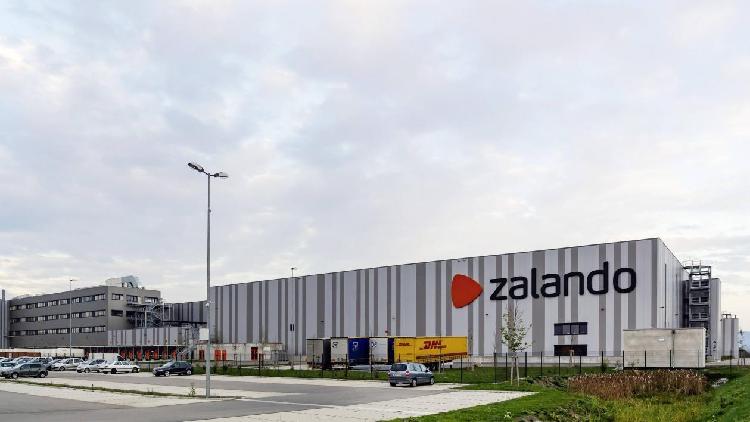Amid tariffs and uncertainty, an increasing number of companies consider markets beyond the US
US President Donald Trump's tariff war is disrupting decades of the global trade system and causing numerous manufacturing companies to reevaluate their long-term business strategies.

U.S. President Donald Trump's tariff policies are disrupting decades of established global trade practices and prompting numerous manufacturing companies to reassess their long-term business strategies.
"We need to pivot."
Canada, the U.S.'s close neighbor that has historically relied on American markets for 75 percent of its exports, was among the first countries affected by Trump's tariffs.
In March, Trump enacted a 25 percent tariff on all steel and aluminum imports into the U.S., followed by another 25 percent tariff on vehicles and parts that fell outside the North American Free Trade Agreement criteria. However, he refrained from imposing a broad reciprocal tariff on several countries in early April.
Experts have indicated that applying reciprocal tariffs on Canada could have resulted in a wave of bankruptcies in the manufacturing sector. Canadian Prime Minister Mark Carney has consistently stated that the old relationship with the United States is finished.
PNP Pharmaceuticals, a contract manufacturer based in British Columbia, has begun seeking clients in Asia in response to Trump's tariff decisions, as Partnership Sourcing Manager Alan Urmeneta mentioned in an interview.
"We are now venturing into other markets as we see that we need to pivot," Urmeneta said, opting not to specify which countries.
LabelPak Printing Inc., a British Columbia-based distributor of packaging products sourced from Asia, is presently not facing tariffs but is contemplating a shift to focus exclusively on the Canadian market, gradually decreasing the 15 percent of sales that come from the U.S.
"If he gets mad… and decides to throw a 50 percent tariff on Canadian goods…it’s going to really put us out of the market," said Ken Gallie, the company’s founder. "We are going to put more emphasis on the Canadian business."
Even if the U.S. establishes a new trade agreement with Canada, the unpredictability of Trump's policies and the uncertainties surrounding business dealings with the U.S. will linger, according to insights from over a dozen companies, advisors, trade lawyers, and associations.
"If you are a smart, savvy business person, you are not going to jump right back into another arrangement where you are totally reliant on a U.S. partner," stated Mike Chisholm, who operates a consultancy for Canadian exporters.
"Owners want stability, banks want stability, private equity funds want stability," he added. "They are just going to be very, very careful."
German retailers redirect their focus.
Amid rising trade tensions and a more unpredictable tariff environment in the U.S., an increasing number of German retailers and consumer brands are shifting their attention away from the American market toward Europe and other areas.
On Tuesday, Zalando, a leading Germany-based online fashion retailer, announced plans to intensify its efforts in the European market, with negotiations ongoing with new potential partners across the region.
David Schneider, co-CEO of Zalando, remarked that the company's website has seen a notable shift in focus from both brands and retail partners toward Europe. Schneider explained that they aim to generate additional demand in Europe as a safeguard against the complexities of the U.S. market.
Zalando is not the only one adapting. German high-end fashion label Hugo Boss has also revised its global strategy in response to changing trade dynamics.
The company has moved production of products made in China away from the U.S. to serve other markets instead. CEO Daniel Grieder cited a "certainly diminished" appetite among U.S. shoppers during the first quarter of the year and reported that sales in the U.S. dropped by 1 percent compared to last year.
These trends underscore the extensive consequences of U.S. tariff policies on the global distribution of consumer goods. Tariffs have compelled many firms to reevaluate the allocation of their resources, moving away from the traditionally profitable American market toward regions considered more stable and predictable.
Adidas, a prominent German sportswear brand, has also voiced concerns about the implications of American trade policy.
In a statement last week, CEO Bjørn Gulden acknowledged that while the company experienced strong growth in the first quarter of 2025, uncertainty regarding future U.S. tariffs is already affecting strategic decisions.
He mentioned that in a normal scenario, the company would have elevated its full-year revenue and operating profit forecast. However, due to the unpredictability of the U.S. policy environment, the company has opted for a more cautious approach. Adidas is also preparing for moderate price increases on its U.S. products to counter potential cost pressures linked to future tariffs.
James del Carmen for TROIB News
Find more stories on Business, Economy and Finance in TROIB business












